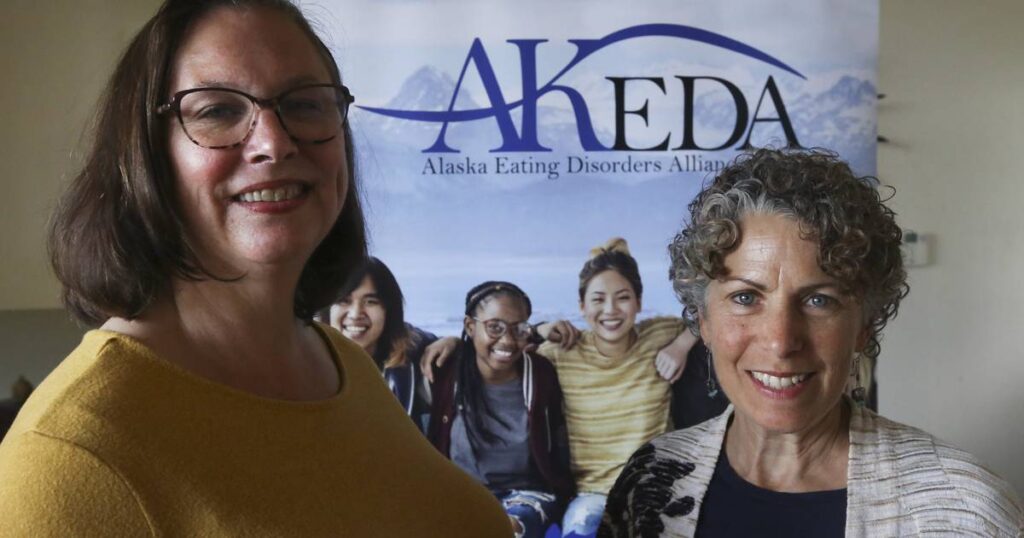By Beth Rose, Jenny Loudon and Becca Kirian
Updated: May 18, 2024 Published: May 18, 2024
One of the most insidious aspects of mental health challenges is the overwhelming sense of isolation and disconnection they can cause. Nowhere is this more evident than with eating disorders, where individuals and caregivers often conceal the life-threatening illness due to feelings of shame and stigma, believing they are alone in their struggles. During Mental Health Awareness Month in May, the Alaska Eating Disorders Alliance (AKEDA) aims to remind Alaskans that support is available, and that recovery is possible, regardless of age or stage.
Eating disorders are more prevalent than commonly understood. Statistics reveal that one in nine individuals, equating to almost 65,000 Alaskans, will grapple with a clinically diagnosable eating disorder during their lifetime. Many more people will experience disordered eating, driven by anxieties surrounding body image, weight, appearance, and the all-too-common failure of restrictive diets.
Despite persistent stereotypes associating eating disorders with specific demographics — such as thin, white, affluent girls — the truth is that these illnesses do not discriminate. They affect individuals of all ages, racial and ethnic backgrounds, income levels, and sexual orientations. Alarmingly, people of color are often half as likely to receive a diagnosis or access treatment.
This year, AKEDA is rallying around the theme of “breaking the silence” on eating disorders to encourage more Alaskans to seek the support they need.
Few grasp the urgency of this mission better than Anna Jajewski, a graduate student in clinical psychology at the University of Alaska Anchorage. At just 14 years old, Anna witnessed her sister, Ellie, struggling with a severe eating disorder alongside depression, anxiety, and chronic suicidality. Throughout her teenage years, Anna and her mother tirelessly sought help for Ellie, navigating multiple suicide attempts and journeys to eating disorder treatment centers across the country. Anna herself wrestled with the burden of secrecy, concealing the truth from teachers and friends to explain her frequent absences from school.
Eventually, Anna’s decision to share her family’s struggles shed light on the pervasive nature of eating disorders, which inspired others to open up about their own experiences. Through her work with AKEDA’s weekly adult support groups, which she co-facilitates alongside her supervisor, UAA Professor Jenny Poon, Ph.D., Anna has witnessed the transformative power of solidarity and shared support. Every week, new individuals join the group to dismantle their isolation.
AKEDA offers a range of programs aimed at shattering the stigma surrounding eating disorders, including a Family and Friends Support Group, a Providers Consultation Group, community programs, training for professionals, caregiver courses, and extensive resources on its website.
Today, Anna’s sister is on a strong path to recovery, a journey made possible through the collective efforts of family, friends and support networks. AKEDA, alongside its partners across Alaska, stands ready to support Alaskans on their own paths to healing and recovery.
Beth Rose and Jenny Loudon are the co-founders of the Alaska Eating Disorders Alliance, and Becca Kirian is AKEDA’s executive director.
The views expressed here are the writer’s and are not necessarily endorsed by the Anchorage Daily News, which welcomes a broad range of viewpoints. To submit a piece for consideration, email commentary(at)adn.com. Send submissions shorter than 200 words to letters@adn.com or click here to submit via any web browser. Read our full guidelines for letters and commentaries here.

